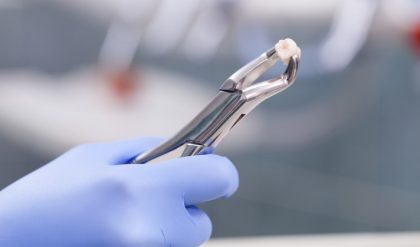
The human papillomavirus, or HPV, is the most prevalent sexually transmitted infection, and from genital warts to cancer, its many kinds can cause a wide range of health problems. Cervical cancer is the most common cancer caused by HPV and kills more than 300,000 women each year.
Cervical cancer is curable if caught early and treated, and thankfully, there are safe and reliable vaccines that can stop it from happening in the first place. In fact, since nearly all cervical cancers are caused by viruses, vaccination could almost completely eliminate the illness.
And now, in what has been hailed as a “historic” discovery based on the first real-world data, the HPV vaccine has been proven to reduce cases of cervical cancer by nearly 90 percent among women who received the jab when they were 12 or 13 years old, bringing hope to thousands and indicating a major step forward in cervical cancer prevention.
The real-world effects of the HPV vaccine
Researchers from Kings College London and the British government examined population-based cancer registry data for seven groups of women in the United Kingdom between January 2006 and June 2019, comparing those who received the Cervarix vaccine, which protects against two strains of HPV, to those who did not at different ages.
Each of the three groups that were vaccinated was immunized at a different age. One group was vaccinated between the ages of 12 and 13, another between the ages of 14 and 16, and another between the ages of 16 and 18. According to findings published in The Lancet medical journal, those who were vaccinated at a young age were the most protected. Those vaccinated between the ages of 14 and 16 had a 62 percent lower rate, while those vaccinated between the ages of 16 and 18 had a 24 percent lower risk.
The vaccine, which works best before people are exposed to the virus, was less effective for girls vaccinated at older ages since more of them were sexually active and therefore exposed to the virus before getting vaccinated. After all, the vaccine can only prevent infection; it can’t cure the virus once it’s been caught.
Overall, the researchers estimated that, by mid-2019, there were 450 fewer incidences of cervical cancer and 17,200 fewer cases of pre-cancers than expected in the vaccinated population. This could be only the tip of the iceberg since those who were vaccinated are still too young to have cancer, indicating the numbers could climb over time. Moreover, the research suggests those who were vaccinated may require considerably fewer cervical screening exams as well.
Know the enemy
HPV can infect anyone who is sexually active, and you might even develop symptoms years after having sex with an infected person, which makes it hard to know when you first became infected.
In most cases, HPV goes away on its own without causing any issues, but it can also put women at an increased risk for cervical cancer, cancer in the back of the throat, and anogenital cancer, and men at risk for anal, penile, and throat cancer.
As a result, more than 100 countries have begun using HPV vaccines as part of the World Health Organization’s plans to eliminate cervical cancer. The milestone study suggests all countries should start vaccinating boys and girls to achieve high immunity; however, uptake and availability of the HPV shots remain a problem.
“Even in a wealthy country, such as England with free access to HPV immunization, uptake has not reached the 90 percent vaccination target of girls aged 15 years set by WHO,” wrote gynecologists Maggie Cruickshank and Mihaela Grigore.
For example, in the U.S., each dose of the vaccine can cost about $250 if you don’t have insurance, and three shots are needed to have protection, according to Planned Parenthood. Moreover, nearly 90 percent of the 300,000 fatalities caused by cervical cancer each year occur in poor and middle-income countries with limited access to cervical cancer screening. In some other countries, women aren’t even aware of the issue, and by the time they’ve learned it, it can be too late. Coupled with proper education and government aid, vaccination, it is hoped, will have a greater impact in these countries, potentially eradicating the disease from the face of the earth.
It should be noted that this research is not the final word on the vaccine since there are still questions that need to be answered regarding how long protection lasts and if a mid-life booster is necessary.
However, such findings, as the Cancer Research UK chief executive Michelle Mitchell stated, “show the power of science. It’s a historic moment to see the first study showing that the HPV vaccine has and will continue to protect thousands of women from developing cervical cancer.”





